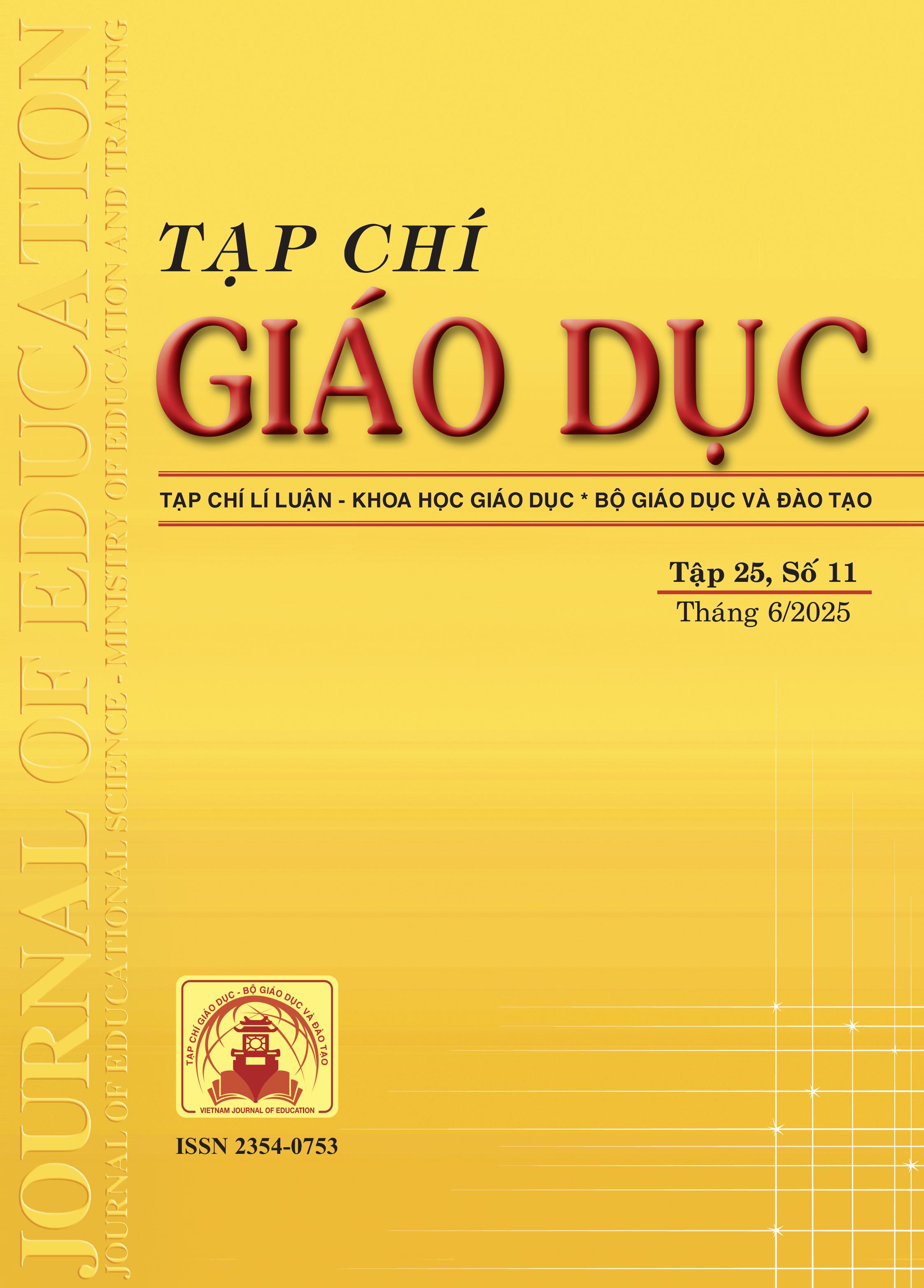Các yếu tố ảnh hưởng đến nhận thức của giảng viên về ứng dụng trí tuệ nhân tạo tạo sinh trong giảng dạy
Tóm tắt
Generative Artificial Intelligence (GenAI) is playing an increasingly significant role in tertiary education in helping lecturers personalize content, create teaching materials, and improve teaching efficiency. Nevertheless, the adoption of this technology still faces various challenges, the most significant of which concern lecturers' attitudes and impressions. This study aims to identify the most significant factors that influence the perceptions of Vietnamese university lecturers in implementing GenAI in teaching. By conducting exploratory factor analysis (EFA) using SPSS 2.6 to a survey of data collected from 519 Vietnamese university lecturers, the research identified five key influencing factors that were found to be: (1) Institutional strategy and implementation support; (2) Perceived usefulness; (3) Perceived ease of use; (4) Technological skill; and (5) Perceived need to use. All these factors are involved in formulating a positive attitude and instilling lecturers towards utilizing GenAI in instructional practices. On the basis of these findings, the research proposes pragmatic recommendations to enhance the integration of GenAI in higher education, thereby supporting teaching quality enhancement in the digital education system.
Tài liệu tham khảo
Bộ GD-ĐT (2024). Quyết định số 4153/QĐ-BGDĐT ngày 25/12/2024 về Kế hoạch tăng cường ứng dụng công nghệ thông tin và chuyển đổi số năm 2025.
Cheng, Y. M. (2019). How does task-technology fit influence cloud-based e-learning continuance and impact?. Education + Training, 61(4), 480-499. https://doi.org/10.1108/ET-09-2018-0203
Davis, F. D. (1989). Perceived usefulness, perceived ease of use, and user acceptance of information technology. MIS Quarterly, 13(3), 319-340. https://doi.org/10.2307/249008
Hair, J. F., Black, W. C., Babin, B. J., & Anderson, R. E. (2009). Multivariate data analysis (7th ed.). Pearson Education.
Hồ Mạnh Tùng, Nguyễn Tô Hồng Kông (2024). 5 yếu tố tiền đề của tương tác giữa người và máy trong kỉ nguyên trí tuệ nhân tạo. Tạp chí Thông tin và Truyền thông, 4, 87-91.
Holmes, W., Bialik, M., & Fadel, C. (2019). Artificial intelligence in education: Promises and implications for teaching and learning. Center for Curriculum Redesign. https://curriculumredesign.org/wp-content/uploads/AI-in-Education-Promises-and-Implications_June2019.pdf
Kaiser, H. F. (1974). An index of factorial simplicity. Psychometrika, 39(1), 31-36. https://doi.org/10.1007/BF02291575
Kim, J. O., & Mueller, C. W. (1978). Factor analysis: Statistical methods and practical issues (Vol. 14). Sage Publications.
Lê Anh Vinh, Trần Mỹ Ngọc. (2024). ChatGPT và giáo dục: Tổng quan tình hình nghiên cứu trên thế giới và Việt Nam. Tạp chí Khoa học Giáo dục Việt Nam, 20(5), 1-11.
Moorhouse, B. L. (2024). Beginning and first-year language teachers’ readiness for the generative AI age. Computers and Education: Artificial Intelligence, 6, 100201. https://doi.org/10.1016/j.caeai.2024.100201
Nguyen, N. T., & Truong, H. T. (2025). Trends and emerging themes in the effects of generative artificial intelligence in education: A systematic review. EURASIA Journal of Mathematics, Science and Technology Education, 21(4), em2613. https://doi.org/10.29333/ejmste/16124
Taherdoost, H., Sahibuddin, S., & Jalaliyoon, N. (2014). Exploratory factor analysis; concepts and theory. International Journal of Academic Research in Management, 3(4), 50-58. https://hal.science/hal-03778593/document
Teo, T. (2011). Technology acceptance research in education. In Technology acceptance in education (pp. 1-5). Rotterdam: SensePublishers.
Thủ tướng Chính phủ (2020). Quyết định số 749/QĐ-TTg ngày 03/6/2020 phê duyệt Chương trình chuyển đổi số quốc gia đến năm 2025, định hướng đến năm 2030.
Venkatesh, V., Thong, J. Y. L., & Xu, X. (2016). Unified theory of acceptance and use of technology: A synthesis and the road ahead. Journal of the Association for Information Systems, 17(5), 328-376. https://doi.org/10.17705/1jais.00428
Zeb, A., Ullah, R., & Karim, R. (2024). Exploring the role of ChatGPT in higher education: Opportunities, challenges and ethical considerations. The International Journal of Information and Learning Technology, 41(1), 65-85. https://doi.org/10.1108/IJILT-04-2023-0046
Tải xuống
Đã Xuất bản
Cách trích dẫn
Số
Chuyên mục
Giấy phép

Tác phẩm này được cấp phép theo Ghi nhận tác giả của Creative Commons Giấy phép quốc tế 4.0 .












